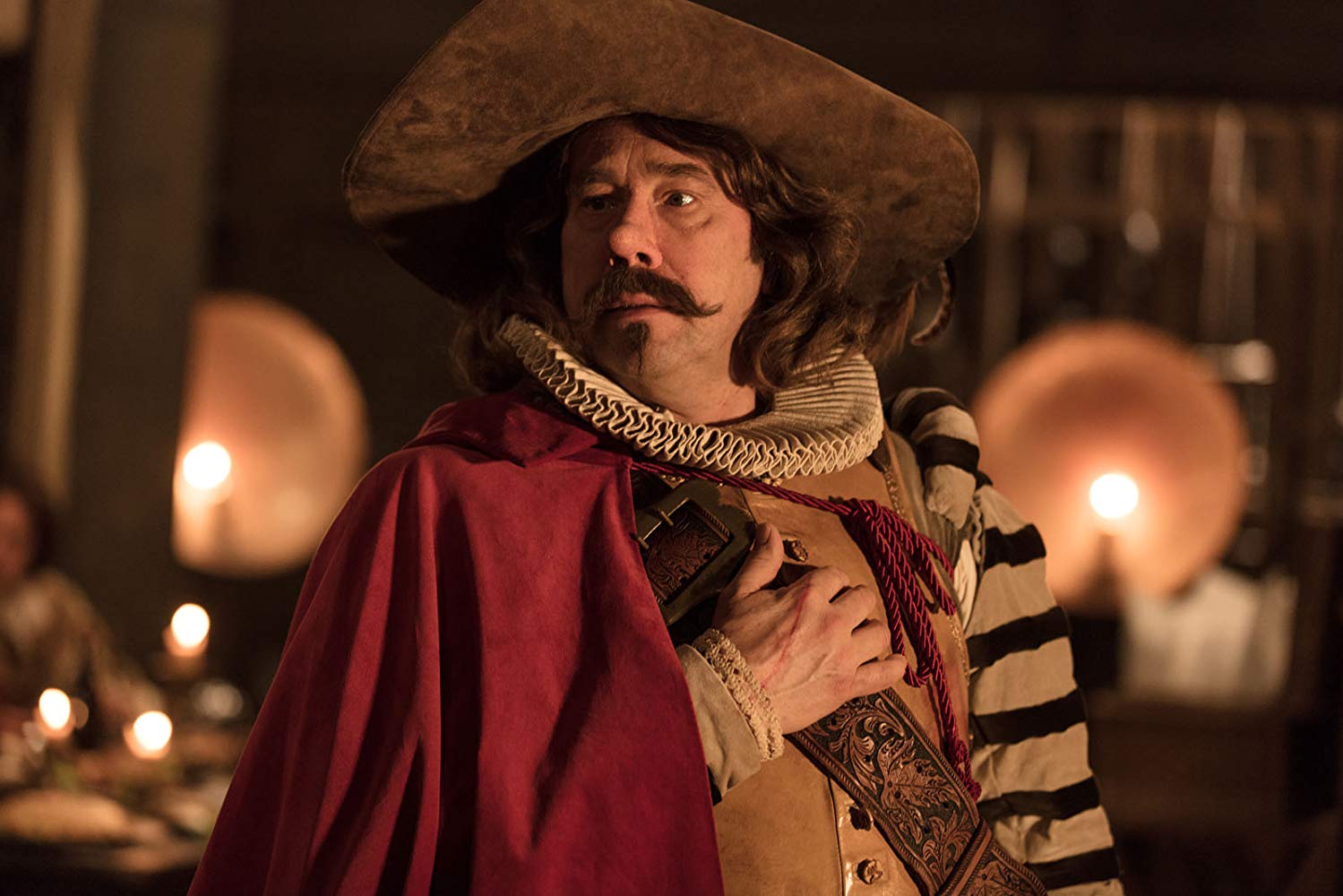
- Golden Globe Awards
Cyrano My Love (France)
It’s 1897 in Paris and young dramatist Edmond Rostand (seductively energetic newcomer Thomas Solivérès) is a struggling wordsmith plagued with anxieties, unable to find the inspiration for his next work. In desperation, he offers the great stage star of the Belle Epoque, Constant Coquelin (Olivier Gourmet, a Dardenne brother regular), a new play, a heroic comedy, in verse. The only problem is that it is not written yet. Ignoring the lack of enthusiasm of all around him, Edmond has three months to put pen to paper. For now, he has only the title: Cyrano de Bergerac.The eponymous swashbuckling poet with a very large nose remains one of the most iconic characters in French literature and the play an enduring classic. Adapting his own already successful play Edmond, first time director Alexis Michalik doesn’t offer another version of the well-known story of a man who loves passionately and is not loved in return, becoming instead the voice of another, his close friend and romantic rival. But he explores in a largely fictionalized manner, the chaotic creative process that Rostand (1868-1918) endured writing what would become his crowning achievement. “Shakespeare in Love was an inspiration,” 36-year old Michalik acknowledges, “I thought it would be great to have this kind of movie with a French playwright as the central character. Cyrano is one of my favorite plays and I always believed the author was an old man. But in fact, he was a 29-year-old who only had flops before achieving success. That’s what gave me the idea for my movie ten years ago.” At the time, however, no one wanted to risk financing such a project. Instead, Michalik went on to write a play, which became a huge hit in 2017, winning five prestigious Molière awards (the equivalent of the Tony). Now that Michalik had consolidated his status as French theater’s new golden boy, producers were suddenly willing to make the movie version.In transitioning from the stage to the screen, the director wanted to avoid the usual traps that often plague such adaptations. “I am a theater man and I hate it when sometimes people say theater is a boring, dusty, elitist place compared to movies and TV shows. I’ve been working for a long time to make plays that are fast and snappy and interesting and funny, and I wanted my movie to reflect that. Usually, with filmed theater, the result feels pretty still, but with this I wanted to be in the middle of the action all the time, to tell the story in a very fluid and dynamic way and give the viewers the experience of being on stage with the actors. That’s why we used mostly a Steadicam which allowed us to keep the feeling of always moving.”An actor himself, Michalik cast himself as George Feydeau, an old school playwright and jealous rival of Rostand. Joining several luminaries of the time like Chekhov, Courteline, Mélies in this fast-paced and buoyant fantasy love letter to the theater and their performers, set in an expensively recreated turn-of-the-century Paris. The result is a backstage vaudevillian comedy of contagious exuberance in the vein of Peter Bogdanovich‘s Noises Off and Mike Leigh’s Topsy Turvy. “My primary goal is to entertain,” sums up Michalik, “I wanted to inject the essence of Cyrano in the film, the heroism, the romanticism, and the famous balcony scene. It should not be viewed as dated or modern, but as an atemporal work ” Mission accomplished.

